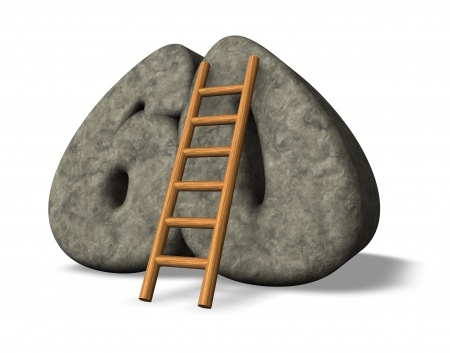I have a theory about human development, at least for men:
For the first 10 years, you develop your neuroses.
For the next 10 years, you act them out.
Assuming you have a modicum of self-awareness and don’t just keep acting them out, in your 20s you get really neurotic about how neurotic you are.
In your 30s you try really, really hard to get rid of your neuroses.
When you hit 40, it dawns on you that you are every bit as neurotic as you ever were, but you begin to be less apologetic about it.
Again assuming that you don’t revert to adolescence and go back to acting out your neuroses, in your 50s you learn to put them to work for you.
Here’s where I run into trouble with my theory. I turn 60 tomorrow, and I don’t know what happens next. I’m pretty sure that by the time you hit 70, certainly by 80, you’ve earned the right to be as neurotic as you want to be, and no one cares anymore. Personally, I can’t wait. But what about 60?

I suspect that in your 60s you get to take another look, and you realize that all those things you thought were neuroses are actually what makes you, well, you. As one of my friends, also turning 60, put it, we’ve reached an age where we are psychologically thinking about retiring, but physically have no need to retire and economically we can’t afford to. “The interesting thing,” she wrote, “is what I want to retire from. The catchall term for it is bullshit.”
By “bullshit” she meant conforming to expectations that are no longer meaningful, chasing after things that no longer seem worthy. In this context, “bullshit” means pretty much, and is pointed pretty much at, the same things we called “bullshit” when we were in our 20s. Here’s the best bit: my friend concluded, “except that now I am much better informed about how and why the bullshit is bullshit.”
For me what falls into the general category of bullshit is what Nigel Marsh talked about in his fabulous TED talk about work-life balance when he said, “so we have thousands of people working at jobs they hate, to enable them to make money to buy things they don’t need, so they can impress people they don’t like.” That about sums it up, no?
I love that line: “Much better informed about how and why the bullshit is bullshit.”

Back to my theory of human development. I think perhaps there are two distinct paths in your 60s. In one path, the one I seem to be on, you learn to embrace your neuroses. You accept them, take responsibility for them, and begin to celebrate them.
You learn that there are more important things than being right. There are more important things than “executing a plan” or timely finishing a “deliverable.” You learn that there are more important things than winning.
On this path, in your 60s you learn that verbs are more important than nouns. It’s more important to relate than to “be in a relationship,” more important to trust than to “build trust,” more important to collaborate than to “be collaborative,” more important to love than to “be compassionate” or to be “in love.”
You learn that how much you’ve saved for retirement is less important, and less interesting, than what you will have done with the money by the time it’s all gone.
You learn that being is more important than doing, and both are way more important than having.

There is another path, apparently. I didn’t really think about this until I sat down to write, but I am forced into the awareness of this other path by realizing that much of what is currently wrong with “the system” is being driven by men in their 60s. For them, the path seems to be the polar opposite of the one I think I am on.
On this other path, which perhaps follows a decade of 50s where you go back to acting out your neuroses, in your 60s you rail against them. You cling to nouns, and objectify nearly everything. You reject your neuroses, blame anyone other than yourself for them, and do your best to bury them.
It’s like in your 30s when you tried really hard to get rid of your neuroses, only now you’re self-righteous about it.
This is how things happen like bills to fund the government only if we defund a plan to give people more access to healthcare (thank you John Boehner of the US House, age 63), where gun control becomes more anathema than people shooting one another (thank you Wayne LaPierre of the NRA, age 64), when objectifying women goes so far that we can have a politician seriously argue that women rarely get pregnant after being raped because their bodies have “ways to shut that whole thing down” (thank you Todd Akin defeated politician from Missouri, age 66). I could go on, but you get the idea.

So maybe in the end it comes down to this: in your 60s, you get to choose what you do with your neuroses; or maybe you realize they were always a choice, only now you’re able to do something about it.
I’m not sure, but that’s my story and I’m sticking to it.
How about you?
If you’re entering or in your 60s, which choice will you make?
If you’re younger, which will you make when you get there, and between now and then? If you’re past your 60s and looking back, how’s it look from the other side?
If you’re a woman, does this work for your trajectory too?
Dr. Les Kertay




